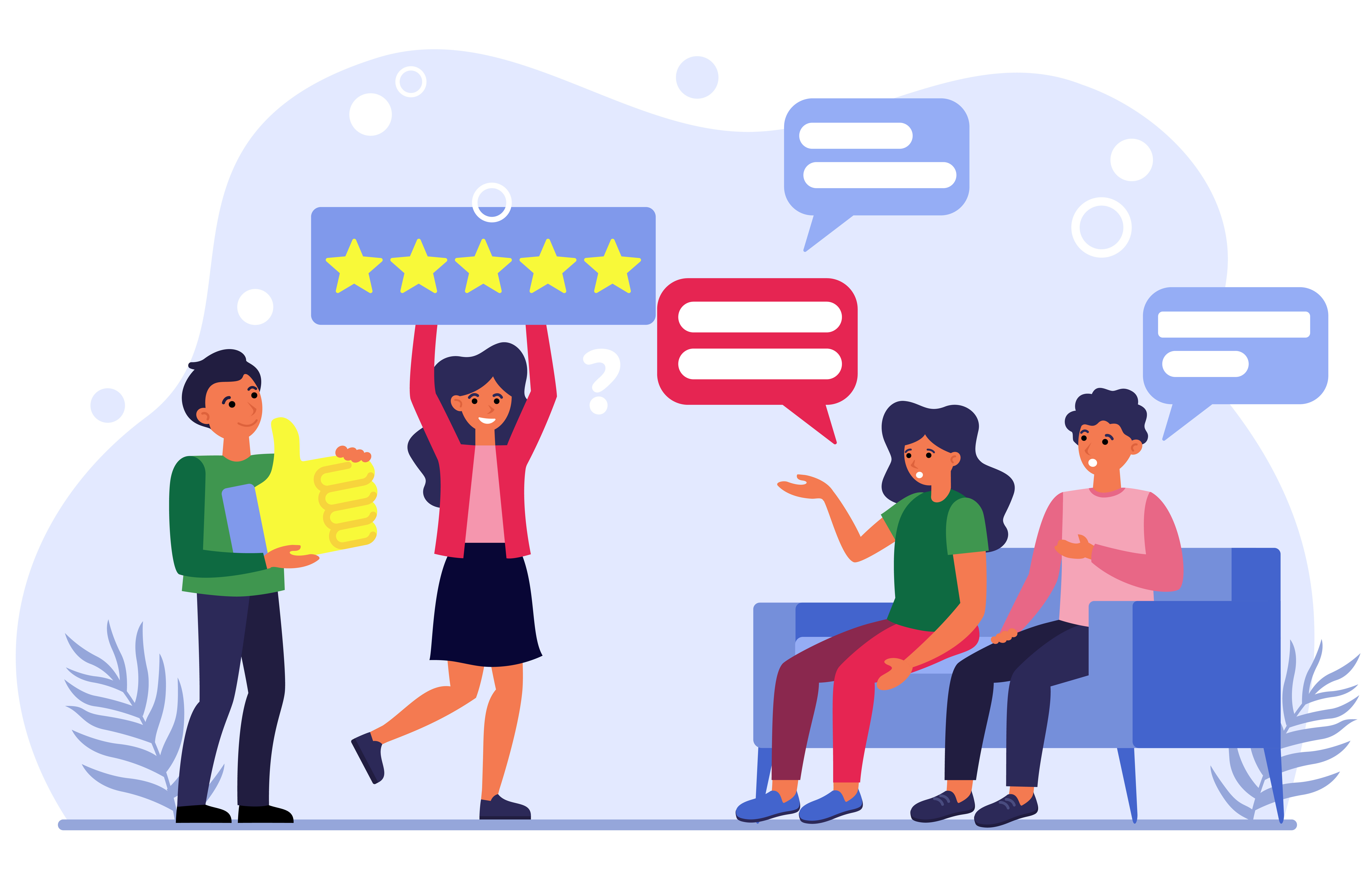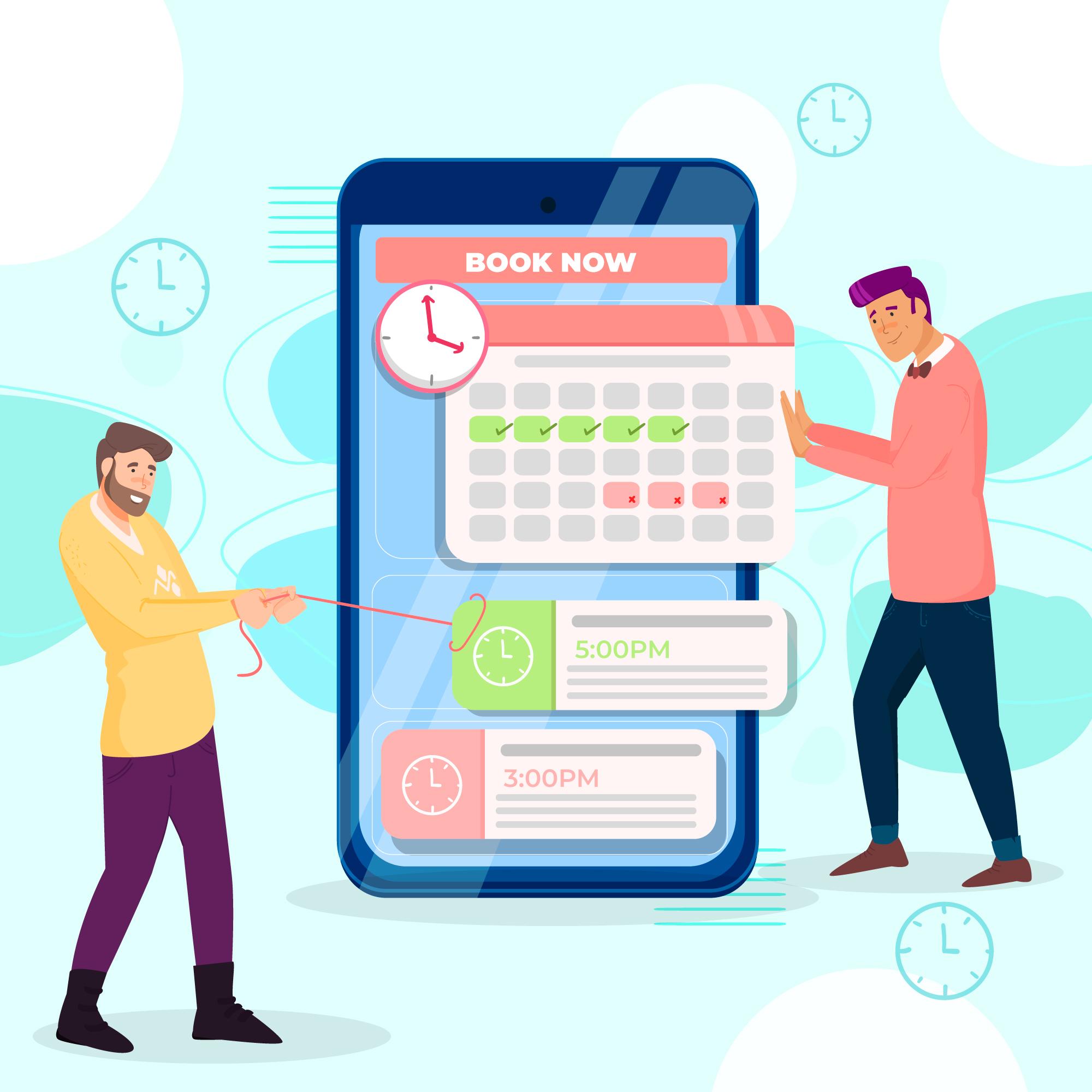Table of Content
Try Vizitor for Free!

Wed, Jan 1, 2025
Read in 10 minutes
Imagine a customer entering your store, voicing dissatisfaction about product availability, and then leaving without making a purchase.
Your business misses out on revenue and valuable insights that could have helped improve services.
It’s a simple fact, yet it builds trust, loyalty, and satisfaction.
Listening to customers isn’t just about resolving complaints; it’s about understanding their needs, improving products, and creating better experiences.
In today’s business environment, actively listening to customers has become the cornerstone of success. Companies are moving their focus from productivity to customer services, where satisfaction is the driving force behind every decision.
But why is this so important, and how can businesses improve their efficiency and growth by actively listening to their customers?
Listening to your customers might seem like not a crucial task but in reality, it can drive powerful, active changes in your business.
But just how crucial is it to truly listen to your customers?
A queue management system is a great tool for gathering valuable customer service data that helps businesses understand how to improve customer satisfaction.
However, relying solely on data may not be enough. Actively seeking direct customer feedback can offer deeper insights and may prove beneficial for businesses to enhance their Operational efficiency
Here, we’ll explore how listening to customers, including active listening in customer service, can drive success for your business and how it benefits your business efficiency levels.
Why Listening to Customers is Crucial for Success
In an age where competition is strong, customer expectations are rising, and businesses are continually seeking an edge, effective communication can make or break your brand. But why is listening so crucial?
Did you know that businesses that listen to their customers see:
- 25% increase in customer satisfaction
- 20% boost in customer loyalty
- 30% improvement in customer retention rates
These statistics clearly show that active listening isn’t just a fact; it’s a necessity for businesses to drive growth and success.
Listening to customers allows businesses to gather specific, real-time feedback, which is often more insightful than surveys.
According to a survey by Zendesk, 62% of customers stop doing business with brands due to poor customer service, often tied to feeling unheard.
Listening to clients is not just about resolving issues—it’s about creating a connection. When customers feel valued, they’re more likely to return and recommend your business.
Staying Relevant in a Competitive Market
In today’s modern market, staying relevant is key to surviving and thriving. As consumer demands evolve, businesses must listen carefully to understand emerging trends, unmet needs, and new opportunities.
By gathering feedback through various channels, companies can adapt their strategies, products, and services to meet these ever-changing expectations.
Improving Customer Satisfaction and Loyalty
Listening to customers fosters trust, which is the foundation of customer loyalty. When customers feel that their opinions are valued, they are more likely to return, recommend the business to others, and provide valuable feedback for future improvements.
Stats:
According to a study by Forbes, businesses that actively engage with their customers experience a 25% increase in customer satisfaction. The ability to provide solutions based on direct customer input increases loyalty and customer retention.
Improving Operational Efficiency
When you listen to customer feedback, you gain insights into how your business operates from the perspective of your audience.
Customers can identify bottlenecks, point out inefficiencies, or provide suggestions that might not be visible from an internal viewpoint.
6 Benefits of Actively Listening to Your Customers
Listening to your customers isn’t just about gathering complaints or suggestions; it’s about creating opportunities for improvement, boosting customer satisfaction, and ultimately growing your business.
Below are the key benefits:
1. Builds Trust and Loyalty
Do you ever feel more satisfied when a company goes out of its way to listen to your concerns and feedback?
Hope you have experienced that…..
Customers trust businesses that actively listen to them.
A customer who provides feedback about poor service waits and sees that changes are implemented (e.g., a faster queue process or improved service speed) will likely be more loyal. Customers who have their issues resolved quickly through feedback channels are 70% more likely to continue their business with the same company.
A report by HubSpot reveals that 93% of customers are likely to make repeat purchases with companies offering excellent customer service, and listening plays a huge role in that.
Reports reveal that when Starbucks launched its “My Starbucks Idea” platform, they allowed customers to share ideas and feedback. This not only generated innovative ideas but also made customers feel heard, boosting loyalty.
Satisfied customers are more likely to stick with your brand. Listening to them helps build trust and shows empathy.
2. Fosters Product Improvement
Customer feedback provides the best insights into what’s working and what’s not in your product or service.
By paying attention to customer complaints, suggestions, or requests, companies can identify areas for innovation or enhancement. When you listen, you create opportunities to improve and stay competitive in the market.
As a business owner, you are using a queue management system like Vizitor and you receive feedback on the system’s user interface, leading to improvements such as a more intuitive design or faster check-in process.
This continuous feedback loop allows you to evolve and improve the product offerings based on real customer needs.
Actively listening to customers often results in product refinements and innovations.
When customers suggest improvements, businesses can take action that boosts product quality and makes it more appealing to potential buyers.
3. Strengthens Your Brand’s Reputation
Have you ever shared a positive experience online after a company took action on your suggestion?
In the digital age, where reviews and social media feedback spread quickly, actively listening to customers can enhance your brand’s reputation.
Customers are more likely to share positive experiences online if they see businesses are willing to take their feedback seriously and make changes.
Studies show that 86% of consumers say that they are more likely to purchase from a company with positive reviews.
Trustpilot reports that brands that engage with customer feedback receive 20% more positive reviews.
4. Boosts Sales and Revenue
Would you purchase from a brand again if they continuously met your expectations and improved based on your feedback?
Ofcourse, yes….
One of the ultimate benefits of listening to your customers is the potential for increased sales and revenue.
Happy, satisfied customers are more likely to make repeat purchases and recommend the brand to others, leading to organic growth.
Companies that listen to their customers and act upon their feedback see an average 10-15% increase in revenue, according to a report by McKinsey.
Active listening, when paired with effective action, leads to increased customer retention and revenue growth.
5. Operational Improvements
Listening to your customers helps businesses pinpoint areas of operational inefficiency.
Customer feedback can often reveal hidden flaws or bottlenecks in service processes that internal teams may not notice.
64% of customers believe businesses should improve their efficiency by acting on their suggestions. By using real-time feedback collected from customers, businesses can enhance the flow of operations and ensure better performance.
Feedback regarding operational aspects such as waiting time, customer service responsiveness, or even user interface issues can help businesses optimize processes and deliver smoother, more efficient service.
6. Helps Anticipate Future Customer Needs
One of the most valuable benefits of actively listening to your customers is the ability to anticipate future needs and trends.
When businesses listen closely to feedback, they can spot patterns and proactively adjust their strategies to meet future demands.
A queue management system like Vizitor that collects feedback in real-time might indicate that customers prefer a self-check-in option.
In response, the company could implement self-service kiosks or an app that allows customers to check in remotely, anticipating their needs before they even express them.

How to Effectively Listen to Your Customers
1. Implement Active Listening Techniques
- Encourage open-ended questions during interactions.
- Train employees to summarize and confirm what customers are saying.
2. Use Technology to Gather Feedback
- Queue Management Tools like Vizitor enable seamless feedback collection through digital forms and surveys.
- Analyze data trends to identify recurring issues.
3. Engage Customers Across Multiple Channels
- Social media, email surveys, and in-store interactions are all valuable feedback sources.
- Ensure quick and personalized responses to customer queries.
4. Action on Feedback
- Share action plans with customers to show their input is valued.
- Example: “Based on your suggestions, we’ve introduced a loyalty program to reward frequent purchases.”
5. Create Listening environment
- Encourage feedback at all organizational levels.
- Recognize and reward employees who excel in customer service.
How Technology Can Enhance the Listening Process
While listening to customers is fundamental, technology can play a major role in making the process more efficient, accurate, and actionable.
Tools like Queue Management Systems and Customer Feedback Platforms can gather, analyze, and respond to customer concerns in real-time, helping businesses improve their service on the fly.
Queue Management Systems (QMS): Solutions like Vizitor help manage customer queues effectively by collecting feedback at the point of service.
These platforms can provide valuable data on customer wait times, satisfaction levels, and recurring concerns, allowing businesses to address pain points quickly.
According to a McKinsey report, companies using automated customer feedback systems see improved customer satisfaction by 25-30% in just the first few months.
Customer Feedback Platforms: In addition to direct feedback on queues, platforms like SurveyMonkey or Google Forms can be integrated into your website or mobile app to gather more in-depth customer insights. These platforms allow businesses to collect qualitative data that can guide strategic decisions.
Artificial intelligence: AI tools can track and share analysis, helping businesses understand customer emotions and needs through written feedback.
Tips for Actively Listening to Your Customers
Listening to your customers doesn’t have to be complicated. Sometimes, small changes in how you interact with customers can make a big difference.
Here are some simple, actionable tips to help you get started:
1. Ask the Right Questions: Instead of just collecting random feedback, ask questions that help you understand your customers’ experiences better. Questions like “How was your wait time today?” or “What can we improve about your experience?” provide direct, valuable insights.
2. Use Multiple Feedback Channels: Different customers may prefer different ways of sharing their thoughts.
Offer options like online surveys, comment cards, and social media feedback. Make it easy for customers to share their experiences wherever they feel comfortable.
3. Be Available for Complaints: Sometimes, customers simply need a place to voice their frustrations.
Having a dedicated team or a simple online form where customers can share complaints shows that you’re open to listening and improving.
A business can add a simple “Contact Us” button on their website or app for customers to easily submit their feedback.
4. Acknowledge Feedback: When customers take the time to provide feedback, always acknowledge it. A simple thank-you message goes a long way in making customers feel valued.
After receiving feedback about long wait times, a store could respond with, “Thank you for your feedback! We are actively working to reduce wait times and improve your experience.”
5. Take Action Quickly: When you receive feedback, don’t wait to make changes. Even small improvements show that you’re listening and care about customer satisfaction.
With the right systems in place, like Vizitor’s Queue Management System, you can optimize your customer service, reduce waiting times, and enhance overall satisfaction.
Vizitor understand that listening to customers begins with optimizing the entire customer experience.
One of the key factors in enhancing customer satisfaction is reducing their wait times, which is why our Queue Management System is designed to help businesses like yours streamline customer flow seamlessly.
Remember, a business that listens is a business that grows. The more you understand your customers, the better you can serve them.
So, take the first step today and start listening to your customers actively.
Ready to revolutionize your customer experience? Schedule a demo with Vizitor today and discover how our Queue Management System can help your business listen, adapt, and thrive. Don’t wait—your customers are ready for a better experience!









